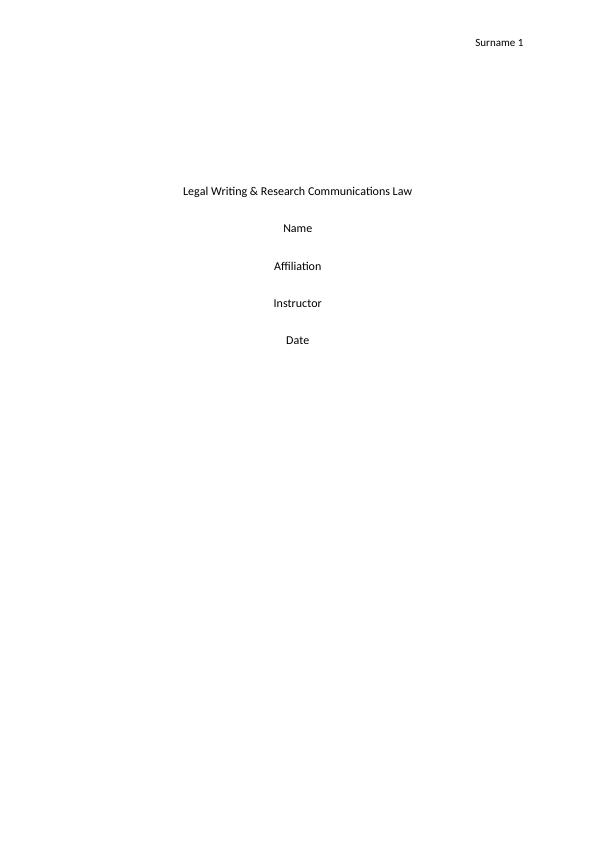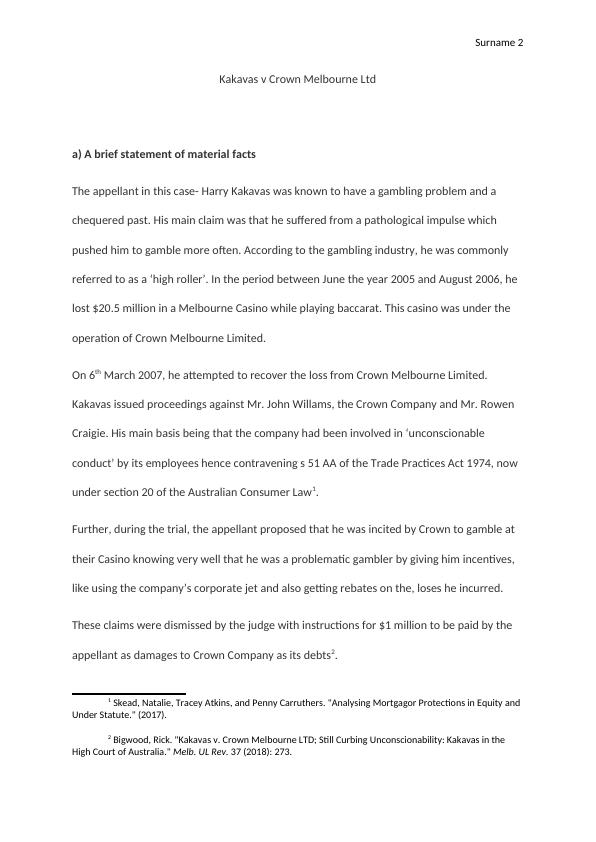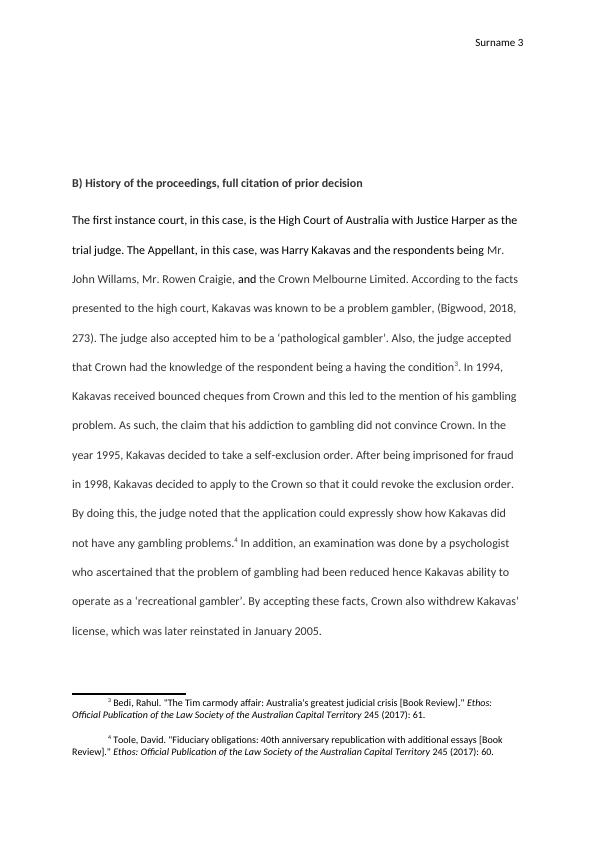Kakavas v Crown Melbourne Ltd: Unconscionable Conduct and Problem Gambling
8 Pages2059 Words243 Views
Added on 2023-06-07
About This Document
This case analysis discusses the legal proceedings of Kakavas v Crown Melbourne Ltd, where the appellant claimed unconscionable conduct based on problem gambling and interstate exclusion. The High Court dismissed the appeal with costs on the appellant, and the decision was based on section 20 of the Australian Consumer Law.
Kakavas v Crown Melbourne Ltd: Unconscionable Conduct and Problem Gambling
Added on 2023-06-07
ShareRelated Documents
End of preview
Want to access all the pages? Upload your documents or become a member.
Kakavas v Crown Melbourne Ltd and the Doctrine of Precedent
|9
|2647
|216
Critical Analysis of Kakavas v Crown Melbourne Ltd
|10
|2792
|18



